We’ve taken a look at hundreds of game translations so far, mostly from Japanese to English. But I’ve always wanted to look at the reverse, so a good way to start is to answer the question: what Western games are well known for their localizations into Japanese?
I went through lots and lots of Japanese review sites, message boards, social media posts, etc. to see what I could find. A small handful of games immediately stood out everywhere I looked, including:
- Witcher 3: Wild Hunt
- Uncharted series
- Bioshock series
- Borderlands 2
- Overwatch
Those are just a few of the top game localizations, though – see below for summaries of these localizations and more.
Also, while researching all of this, these were some of the most highly regarded English-to-Japanese game localization companies:
- Spike Chunsoft
- Square Enix
- Ubisoft
- Sony
- Flyhigh Works
I’m sure there are more, but these ones seem to be some of the top names in the industry for quality localizations.
Important Information

Another important point: games that have multi-platform releases or later get ported/remastered sometimes get brand new localizations. So some things on this list might have have been updated or redone entirely by the time you’re reading this.
Also, this list is not comprehensive – it’s only a small handful games for now, but I plan to add more to the list from time to time. So if I’ve left a game out here, it could still get added later on.
Japanese Game Localization Summaries
The following list is in alphabetical order.
Alan Wake
The voice work for this game’s localization was apparently top-notch.
Bioshock Series
This series is known for its wonderful localization with memorable writing and voice work. Apparently you could also point your cursor at signs in English and the Japanese translation would pop up. The first game was released so long ago, yet it had such a solid localization compared to everything else at the time that it’s surprising. The Japanese version of “Would you kindly…” is maybe just as memorable.
Borderlands 2
This Japanese localization is very highly praised. I’ve read that there are a number of translation mistakes, but the quality of the dub and everything else more than make up for it. Apparently everything reads and sounds so natural that it’s hard to believe it’s a foreign game. The voice work is supposedly so good that it rivals the original English voices.
Destroy All Humans
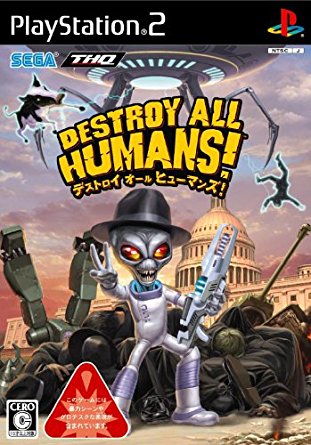
Whatever the case, the game was transformed into an over-the-top, wacky game full of pop culture references that still sort of fit the vibe of the original game while being targeted specifically for Japanese audiences. So now it’s got anime references, tokusatsu references, and stuff like that. Apparently it went over pretty well, because it’s gained a “so bad/weird that it’s good” reputation over the years.
Enter the Gungeon
I’ve seen lots of love for this game’s Japanese localization. In particular, I’ve seen praise for the fact that it remains so funny in Japanese and that all the parodies are presented properly for Japanese audiences.
Fallout 4
The fact that you can make your character male or female made things very difficult for the localizers. As a result, the player’s text uses male speech patterns, but the voiceovers use female speech patterns. It’s apparently a strange combination overall. Some fans seem impressed with the sheer amount of work the translation must’ve taken, though.
Gears of War Series
These games have really good localized dubs apparently. They feel gritty and funny in the same way that American movies get translated into Japanese.
Grand Theft Auto V
Considered to have a pretty good, thoughtful translation. I saw one interesting comment about how playing it with Japanese subtitles makes it easier to get into accidents, but playing it with the Japanese dub takes away from the game’s vibe.
I’ve written about some of the GTA English-to-Japanese translations in the past – see here.
Harry Potter series
In general, these games seem legendary for their weird, mistake-filled, unnatural-sounding translations into Japanese.
Horizon Zero Dawn
This game seems to have a very positive reputation in terms of localization, although it’s apparently kind of awkward in places. Supposedly Aloy uses male speech patterns a lot, but I wonder if that’s on purpose, given the way she grew up. Some of the game’s special terms have clever and memorable names.
I’ve actually written about Horizon Zero Dawn’s English-to-Japanese translation before – check it out here.
The Last of Us
The quality of this game’s dub is legendary. Apparently the voice acting and even the intonation rival the original in terms of quality.
Life is Strange
This is considered a good localization. Slang terms feel natural, which is an impressive feat in any localization.
Overwatch
Considered a very good localization with an incredible team of voice actors. The localizers supposedly really “got” the game and what Japanese audiences would want out of it.
Ratchet & Clank Series
The localization work in this series is highly regarded for its inventive phrases and creative wording. It all adds up in a way that fits the series’ world.
Rogue Legacy
This apparently had very enjoyable writing in its localization.
Skyrim
I tend to see two camps here: one that really likes the localization and dubbing, and one that hates it and is quick to list mistranslations. This is a somewhat normal pattern to see from any translation of a super-popular game, but it seems there really are many genuine translation mistakes.
The infamous “arrow to the knee” line is regularly quoted, but just by its very nature it’s sometimes mistaken for a poorly translated line.
Fans consistently mention that the bard’s Japanese singing is weird, unnatural, and unnecessary:
Uncharted Series
I’ve seen some occasional negative reactions about the Uncharted games’ Japanese localizations, but by and large these localizations seem to be well-admired. I’ve read that the localization process begins while the games are still in development and not as an afterthought to the main English releases, so that’s probably a big reason for the praise.
The dub work is apparently really, really good. It sounds like the localization work got better with each release and now it’s some of the best Japanese-to-English localization work currently out there.
Undertale
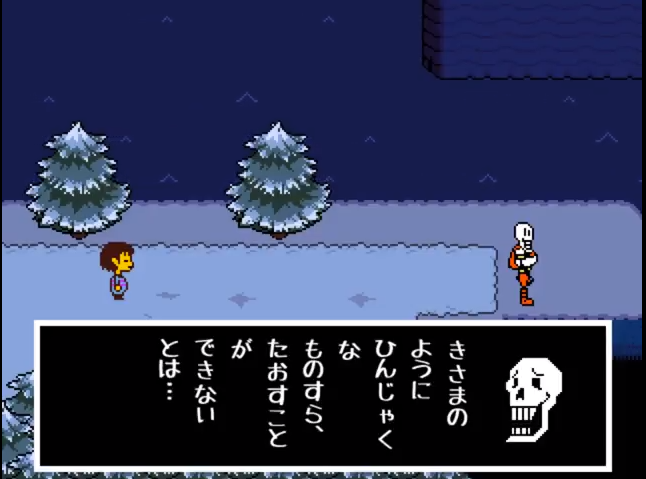
Whenever a fan points out that the game’s creator, Toby Fox, worked with the official translation team, someone else usually says, “But he doesn’t know Japanese so he wouldn’t know what’s good or bad.” Still, I know for a fact that he worked really, really closely with them – often in person – and that their back-and-forth flow of communication was phenomenal.
In any case, someday I plan to write about the Undertale localization changes, the localization process, and more. It’s really fascinating stuff.
Watch Dogs series
All the computer slang was handled exceptionally well in Japanese from what I hear.
Witcher 3: Wild Hunt
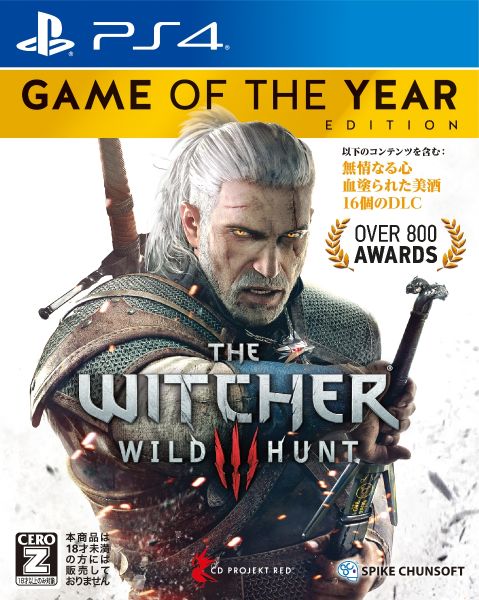
Apparently the localization producer, who has an almost legendary reputation in the industry, temporarily moved across the world to where the game was being developed. I don’t know the details, but that’s a pretty hardcore thing for a translator/localizer to do. Trying to coordinate between Japan and other countries can take forever due to time zone differences, so this probably greatly helped with the flow of communication.
Some of the Japanese phrasing is apparently so good that you’d think it was written in Japanese originally and not a translation. The dub feels extremely natural and nothing sounds out of place at all. The voice actors were apparently really talented too. I’ve seen some rare criticism of some lines being said too quickly to fit within certain time limits and characters whose voices don’t match their ages.
Final Thoughts
Some of the things in the list above came as a surprise to me, so hopefully this has been a fun look at Japanese localizations for you too. I haven’t played the Japanese versions of most of these games, so I can’t personally say much about their quality, but I’d like to do a side-by-side comparison of an English-to-Japanese localization someday. Translating from English to Japanese is really tricky, and I can’t wait to show why!
Anyway, if I’ve left anything out and you’re curious to know about the reputation of its Japanese localization, let me know in the comments. I’ll try to update this article from time to time, so check back every so often!
If you enjoyed this brief overview of games translated into Japanese, here are some other articles I've written on the topic!


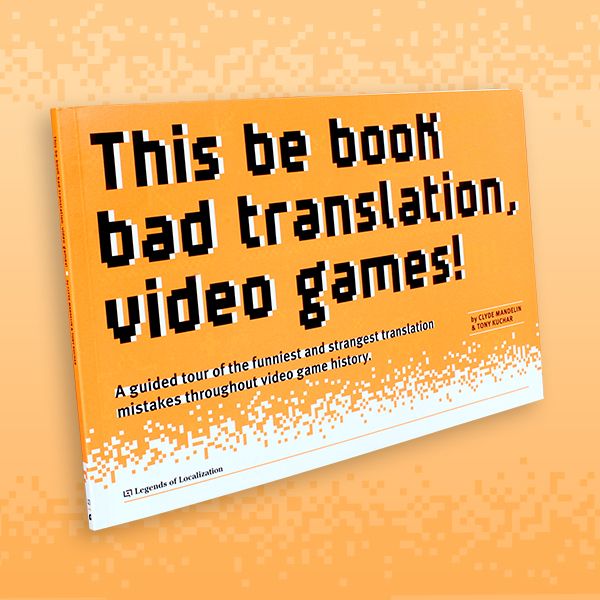
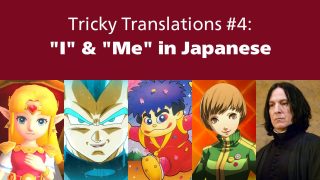
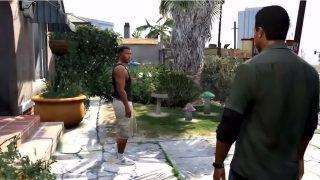
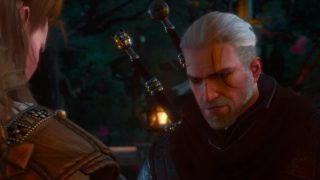
Having played Skyrim with the Japanese voices I’ll note that not only did I notice translation mistakes (The one that most stuck with me is “Skeever Hole” got translated literally instead of noticing it’s a play on “rat hole”. That makes no sense in English given other TES games actually have normal rats but still a mistranslation.) and the voice acting has a weird tendency to make VAs go out of their way to use English pronunciations of certain names so they stop mid-sentence, catch their breath and completely change style. Generally though the voice acting blows the original completely out of the water, though that’s not a high bar in the slightest.
Skyrim’s Japanese dub is better than the original intended version? Sorry, but no, I don’t agree with that.
Yep. Bethesda’s voice acting is really bad. It doesn’t matter if it was the “original intended version” if the original intent was low priced quantity instead of quality.
Well, I don’t agree with you, so your opinion isn’t fact.
“the voice acting has a weird tendency to make VAs go out of their way to use English pronunciations of certain names so they stop mid-sentence, catch their breath and completely change style.”
Good to see there’s the Japanese equivalent of American fans’ “you have to pronounce all names with a Japanese pitch accent, no matter how awkward it sounds” attitude.
Could you expand on why the “arrow to the knee” line is mistaken for a poor translation?
From what I can tell, it’s because it’s such a strange, memorable line that stands in a game already full of translation problems. In a way, it’s like how “I am Error.” or “You spoony bard” are often considered bad/wrong translations when that’s not really the case at all. The fact that the arrow to the knee line appears in so many places seems to magnify that feeling even more.
Since “arrow to the knee” was brought up, it was used in the fan subtitles for Grimoire of Zero, and it turns out it wasn’t trying to be a Skyrim reference on the part of the Japanese script. That’s actually what the man said (he used to be a mercenary, but he suffered an injury specifically to his knee, hence making him retire from the hired sword life), but because of the notoriety of the line in the English speaking world, a lot of people thought the fansubbers were being stupid and inserting a nonsense line just because it was a fantasy anime. Funny how that happens, huh?
The funny thing is the “arrow to the knee” line is a case of bad english-to-english translation in a way!
It’s apparently an OLD English idiom for getting married and/or being lovestruck (since the first thing a warrior would do, quite naturally, when hit with an arrow to the knee is kneel down right where they were, much as being lovestruck by someone might lead to a hasty marriage proposal). This fact is virtually unknown to English speakers. The phrase never really carried forward in a way other phrases of the rough era like “my neck of the woods” or “the pot calling the kettle black” did because woods and kettles have never left us (though hanging kettles and pots over a fire did! though that’s only one possible etymology) but arrows and the idea of courtly love as an ideal have.
So I’d chalk that line up to it being an Idiom that’s incredibly obscure in English, and was transliterated rather than idiomatically translated into Japanese.
I think you’re 100% right, it gets a lot of its humor from the same place as the infamous “spoony bard” line– it’s funny because “spoony” hasn’t been used as an insult since the mid-1800s so it’s an unexpected word to encounter in a video game. Only in this case the source wasn’t a dictionary that didn’t differentiate obscure or from common words, but a native English speaker reaching way back into the lexicon in an attempt to sound medieval.
That turned out to not be true, about it being a euphemism for marriage
I’m curious about what Japanese players think of Oxenfree. I just played it for the first time, and it’s one of the few games I’m familiar with that really *nails* teen interactions and dialogue. All of the characters feel like people I used to hang out with I high school, and it was a gripping supernatural mystery kind of thing to boot. And it has references to WW2, I wonder how that was handled.
I just have one word to say about the Japanese translation of Undertale:
オイラ。
I had to read the other comments to have the slightest clue what the hell your comment means.
When you found out, were you SHOCKED?
It’s funny that the Japanese are just as weeb about translation choices as westerners. Warms my heart, really.
Has this site ever delved into the psychological phenomenon of canonizing the first instance, that is, people preferring whatever they come across first, even if it is objectively of lower quality comparatively? An oft cited example are movie remakes where people will prefer the first version they see, whether it be the original or remake. It looks like Undertale may be a victim of this phenomenon.
I touched on it here, but yeah, I’ve been wanting to write about it in detail for a while now, along with a few other similar psychological things.
One game that would be interesting to look at is Shadow Tactics: Blades of the Shogun: A German game that had a Japanese dub option from the start in all regions. A quick check of the Steam reviews indicates the translation is pretty well received.
I kind of like how weirdly motor-mouthed the Japanese versions of the Skyrim songs seem to be, actually. The Skyrim bards are already known in English for being pretty dopey, so it pleases me that they have a similar reputation for being ridiculous in other languages.
I would love to see more articles like these! I’m always fascinated by how foreigners receive things from my country or near it.
Apparently people were freaking out for a while over Sans in Undertale using “oira” as his pronoun. If you image search オイラショック you still get flooded with pictures of him.
Yep, that’s what I was talking about in my comment. Japanese Twitter blew the fuck up about it for a month or so.
Out of curiosity, do Japanese gamers ever prefer/choose to use English voice acting over Japanese voice acting, the way I sometimes prefer Japanese voice acting to English voice acting? To me, even when I have to rely on subtitles to know what’s being said, Japanese VAs often seem so much better and put more emotion and nuance into their tone (and thus the feeling of what’s being said) than English VAs do, unless the VAs are exceptionally good. I chalk it up to what I suspect are higher standards for voice acting in Japan, and/or perhaps my own inability to recognize flubs or poor delivery in a language I’m unfamiliar with. So I can’t help wondering if that sort of thing works the other way around, too.
Of course there are Japanese gamers that do that. There’s nothing “uniquely American” about wanting to experience media in its original language rather than with a dub, nor does it have anything to do with which language the game was originally in (The Vanishing of Ethan Carter comes to mind as a game where reviewers often brought up how awful the English dub was and recommended using the original Polish voice track over it).
Well, I guess I should rephrase my question…what I wanted to ask is not if ANY Japanese gamer does it – obviously some of them are bound to – and more whether it’s as common a thing as it is over here in the US. I was wondering if the whole subs VS dubs thing is as comparably big over there as the discussions that topic sees in the US, and if it’s as polarizing an issue.
Well, it’s definitely a lot less “polarizing”, considering it at least used to be reasonably common to just release games with English voices and subtitles (as well as producing games that only had English voice acting in the first place, like Resident Evil, Sin and Punishment, etc). This wasn’t just the case with Japan, but with European localizations as well. The entire “I hate listening to any other language but my own and want everything foreign to be dubbed” attitude is, if not necessarily UNIQUE to English-speakers, not all that common in the rest of the world.
Just about everything in Poland is dubbed, and horrendously poorly at that.
How bad are Polish dubs? I don’t know much regarding the country and the language, so I’m interested in learning about it.
The issue with Polish dubs is that all dialogue is spoken by one guy blandly reading from a script, overlapping with the original dialogue. “Dubbing” is probably a misnomer; it’s more of a spoken transcription overlayed onto the movie or show. There are some examples on YouTube when searching for “polish dub”.
It’s a matter of taste whether such a localization is “horrendously poor” – most Polish people are accustomed to that kind of voiceover and don’t find it unusual at all. In fact, I remember my mom complained when one of her favorite shows shifted from voiceover to ordinary dubbing, because it sounded so unnatural to her.
There ARE “normally” dubbed movies and shows as well, but it’s essentially limited to works made for kids and teenagers.
so it’s kinda like how they deal with foreign language speakers in news broadcasts? that’s actually pretty interesting, and you get to hear the original voices without needing subtitles, though I guess it would get annoying if you’re not used to it.
French translations are often good (though there are occasional missteps, like Lego Rock Band, for which machine translation was obviously used, without any editing — it was funny at first, but got old fast), but once in a while we get a localization that can be considered legendary. Personal favorites are the ports of Dragon Quest IV, V, and VI for DS, as well as the new God of War (which has a top-notch dub — you forget that the game’s original language is English).
Are the DQ translations based on the English (which cut party chat and some other dialog)?
I’ve changed the audio in Borderlands 2 to Japanese before, and the voice acting seemed pretty good. Handsome Jack didn’t sound like a high powered CEO, I remember that much, I think they weren’t with more of a rich asshole sound for him.
Having seen video of the game in Japanese I noticed they leave certain terms like “BANDIT” in English in the subtitles.
Also, I could never quite figure out what they decided to call Butt Stallion, which started this whole ordeal in the first place, lol.
Oh man, now I really need to know what Butt Stalion’s Japanese name is.
Butt Stallion was translated to チン・スタリオン (“chin stallion”), which I assume is a contraction of “chinchin stallion”. It would literally mean Penis Stallion if translated back to English.
ah, okay, that makes sense. guess that sounds better than something like ケツ・スタリオン or シリ・スタリオン.
The Bioshock sign thing also happened in the English version (it’s a subtitle setting I believe. Although, I did only play the remastered version, so it’s possible it wasn’t in the original). I imagine that kind of thing was super helpful for the translators to already have that feature and not have to think about possibly changing textures or adding it themselves.
Gotta love the guy in the bard video who goes from ‘Can’t wait to kill another of Ulfric’s boys’ to ‘Maybe we should join forces with them’ in like 2 seconds 😛 But yeah, the Japanese lyrics sound kinda…forced. I don’t really have much experience with Japanese music, but it doesn’t seem like it would be right. Like comparing it to the Gato video you sent me a while back, Gato’s song sounds like it naturally fits musically instead of being a bunch of words just kinda shoved in there.
I wonder what Japanese fans think of Japanese games that were originally only in English, but then got a Japanese dub later, like Bayonetta.
8-4 (the same company that did Undertale, and imo also a fantastic Japanese to English localization company) published an article talking about their work on Shovel Knight:
http://yachtclubgames.com/2016/07/japan-localization/
I was curious if there was any info on how it actually worked out in practice? I imagine it may be a niche game over there, though…
My experience with 8-4 has included some of the worst translations that weren’t BoFII tier gibberish. Baten Kaitos Origins, Fire Emblem Awakening, Xenoblade X, Azure Striker Gunvolt and Drakengard 3 were all drastically cut down in dialog (original release of Gunvolt removed almost all of the story, BKO removes the female spirit option and FE13 removes 4/6ths of the dialog for scenes involving the avatar.), covered in widespread illogical censorship or rewritten to have nothing to do with the original dialog.
Not to kick the dead horse, but adding to your reply, 8-4 were also behind those two:
– Tales of Hearts R : completely inconsistent either with the rest of the series (move, item names) or internally – one character now talks like a sociopath, subtitles not only don’t match the audio (and I don’t mean sentences moved around, but instances where it’s obvious they made everything up or cut entire sentences) but are too long for how long they show onscreen to be readable. It’s a shame the lesson they took from this project was to suggest the audio be cut for their next Gunvolt project to avoid “dissonance between audio and text that had to be rewritten for cultural reasons”, despite all audio having been licensed.
– Mighty No. 9: it’s so badly translated they removed it from their site. Made up references to internet controversies, the infamous [AD LIB MOANING IN PAIN] and the injected snark bumped the rating to PEGI 12 / E+10.
Wasn’t Mighty No. 9 in English originally though? Inafune intended it to have its script in English originally and released in the U.S. dubbed first before the game was dubbed in Japanese.
Adding more to Tales of Hearts R: Localizing character names for a SUB ONLY game.
Same thing with Gunvolt. It’s obnoxious, though supposedly might have something to do with a lot of them being taking real life cars as namesakes. I just don’t understand why fans use the vastly different English names when you can hear the originals clearly.
8-4 can do alright work (Fire Emblem Echoes was certainly a marked improvement over the abysmal 3DS FE translations before it, functioning relatively well as subtitles for the Japanese audio) but I can only regard them with with disdain for regular examples of insulting over localization and plain laziness/incompetence in the aforementioned cases of story content straight up being gutted.
I suppose that if I was from Japan, I generally might play games with both voices and subtitles in Japanese but when it comes to movies, ALWAYS the original voices intact. Should make them easier to watch in my opinion…
Hovering over signs with the mouse to display translations is an amazing solution ahead from what’s already out. It’s usually either leave the assets untranslated, blank them, or give them poor replacements that don’t preserve artistic intent and value.
This article is positive, but the timing was…
Just yesterday, Celeste’s developers got into trouble on twitter because of an outrage over their Japanese translation. Basically a repeat of the Mario Party 8 UK controversy over “spastic”. The translation was allegedly overall weird and awkward but it also translated a sentence that was like “I had a crazy dream” using an allegedly taboo word (気ちがい) used to demean the mentally-ill.
https://twitter.com/osoumen1111/status/1005699865735622656
Morrowind had that for its native English way back in the day. Once textures got good enough you could reliably read in-world text developers kinda just forgot about it.
(4 years late)
気ちがい is indeed a bad word, not just allegedly. You can’t say it on TV, and if it was printed in a manga it would likely be censored. It does mean “crazy”.
The StarCraft I remaster recently had a Japanese version added. The dub is superb, but strangely, none of the JP voice actors are credited in the game credits. I still don’t know who did (Infested) Kerrigan’s wonderful Japanese voice.
As a Japanese learner, it saddens me how a lot of these Japanese localisations are unavailable if you purchased them digitally from the west (i.e Steam). Borderlands 2 allows you to easily switch to Japanese from English, same for Overwatch and StarCraft I through the Blizzard launcher. Didn’t realise Alan Wake had a Japanese localisation and luckily, my copy from GOG.com has an option to toggle between all the 12 languages. But I had no such luck for the BioShock series or the Uncharted series, there’s no Japanese option.
On Steam, at least, you can set BioShock to Japanese in the language tab when you look at the properties.
“But he doesn’t know Japanese so he wouldn’t know what’s good or bad.”
It’s funny, cuz ive seen a lot of people say the same thing about English localizations that were supervised by the Japanese developers. A recent example that comes to mind are the recent Dragon Quest localizations, which i’ve heard are supervised by Yuji Hori.
Well yeah, why wouldn’t they? “This localization is good because a person that doesn’t know the language oversaw/approved of it” is a pretty bad argument no matter what languages we’re talking about.
(same goes for the “this opinion is correct because some important person shares it” argument in general, for that matter. Go tell a Star Wars fan that the changes made to the films’ rereleases are inarguably improvements because George Lucas says so and see what they think of that argument)
Aristotle did call the appeal to authority the weakest argument, after all. So there’s a good deal of support for your position from… uh, an authority on logic. 😮
I laughed.
I’m super in love with Undertale so I’m looking forward to whenever you do an article on its localization. I played through the game in Japanese when it got its PS4 release last year, and while I’m still getting my feet under me in terms of learning what good Japanese writing looks like, it seemed like a very faithful translation. I’ll admit that I prefer the English version in terms of humor and dialogue snappiness, but that could just be my “what I played first/native language” bias at play. It was interesting to see how they handled the key terms with double meanings, like LV and EXP, and I thought they did an excellent job of giving each of the main characters a unique voice that really fit their personalities.
Maybe you could look into Stardew Valley’s recent Japanese localization? I’ve heard there are a few errors in it, which makes me a little hesitant to play it for language-learning purposes. I’m also a bit curious about Mass Effect, though it seems they didn’t actually dub it into Japanese and just did subtitles…
With the topic of dubs coming up in this article a lot, I started wondering what some Japanese think of English-to-Japanese dubs. I’ve seen videos on YouTube poking fun of English-to-Japanese dubs of various TV shows or films, though the people doing it themselves are English-speakers, which doesn’t really speak for the actual quality of the dub. Wouldn’t be surprised to see the sub vs dub debate over there, too.
The Japanese versions of the first two Spyro games were slowed down, zoomed-out, and added voice acting where none was there before. What’s the consensus over there?
Of all the games I heard have a following in Japan, the 2013 Killer Instinct has one. I figure there’s not too much to it in terms of localization but is there anything?
So how was “would you kindly” translated?
It’s 恐縮だが______, which can be translated into English in a million different ways, but is basically a considerate phrase you can use when asking a request of someone.
“Whenever a fan points out that the game’s creator, Toby Fox, worked with the official translation team, someone else usually says, “But he doesn’t know Japanese so he wouldn’t know what’s good or bad.” Still, I know for a fact that he worked really, really closely with them – often in person – and that their back-and-forth flow of communication was phenomenal.”
This reminds me of how Cave Story was localized. Funny enough, the developer, Pixel, apparently worked with the _fan translators,_ Aeon Genesis, instead of the official translators, Nicalis. I’m ill-equipped to dub one localization superior to the other, but I can’t see how having the creator of the work being part of the localization team could be a bad thing unless they try to localize it themselves like with Zero Wing. Toby Fox may or may not know Japanese, but he does know Undertale and ostensibly all of the context within.
“After looking through so many comments, I can’t help but wonder if the same exact thing will happen if MOTHER 3 ever gets an official English localization…”
What, denouncing a translation because of a difference as little as one line? Inevitably. Hell, I’m waiting for the storm that will brew up as soon as Yokuba/Fassad shows up as a trophy in a Smash game.
I kind of get it after MGS4. There’s no obvious mistakes that I remember, yet every scene has something absolutely weird and forced in it. Often the characters seem to be talking around the subject of the conversation. Apparently it’s something to do with trying to replicate the original phrasing in a language with totally different grammar and nuance. Look up the Ch. 2 ending cutscene for some good examples– it’s as if they’re not speaking English so much as using it as a cipher for Japanese.
The bit about UNDERTALE translations sounds like it parallels discourse in English fan circles concerning Around Genesis’ translation vs. the official English script, in a way. A funny parallel considering how Cave Story inspired aspects of UNDERTALE’S setting!
I don’t why anyone would want games developed in the U.S. and Europe to be dubbed or have text in Japanese. Looks like weebism is spreading fast like cancer. Pitiful. -_-
Many of us are Japanese learners trying to improve our language comprehension skills. What better way to do that by replaying some of our favourite videogames in Japanese voices and text? This is quite helpful for those who aspire to become translators or interpreters — seeing how the same line of text has been translated into Japanese is a great way to learn new vocabulary, and gives a better understanding of how localisation (context, culture, nuance) is handled.
People who aren’t English speakers or speakers of any other European language exist. Making things accessible to a wider audience, including those who don’t speak English/French/etc., is generally a good thing.
The US and Europe aren’t the centers of the universe, nor are the languages commonly spoken there.
Can anyone comment on the localization quality of The Evil Within (and its sequel)?